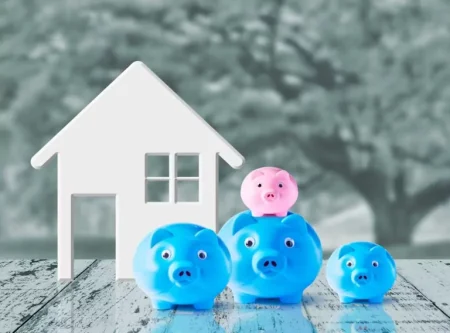Family debt and bankruptcy

Have you borrowed money from family members? Bankruptcy might be right for you, but it may strain relationships with your nearest and dearest. Here is the key information you need to know about family debt and Bankruptcy.
Included in this article:
- Family debt in Bankruptcy – preferential treatment
- Paying back debts after Bankruptcy
- Family debt in Bankruptcy – Assets
Rather speak to person? Give us a call (0800 044 3194) or click here to complete the form below and we’ll call you
Family debt and bankruptcy – preferential treatment.
If you declare Bankruptcy, there are rules relating to how you have conducted your finances in the years running up to your application. Basically these rules prevent people from behaving unfairly to their creditors. This would include anything that results in the creditors getting less money that they would have otherwise.
One example of this is if you have repaid a loan to someone you know in the two years running up to your application. The Official Receiver (OR) who manages your Bankruptcy is able to ask that person to repay the money you have paid to them. If this is a family member, this can create significant problems, especially if they cannot afford it.
This kind of payment is known as ‘preferential treatment’. A basic principle of any debt solution is that all creditors are treated the same. This is proportionate to the amount of debt you have with each creditor. The greater the debt you have with them, the greater the amount they would receive from you compared to the other creditors.
The OR may look to ‘reverse the preference’. If your family member cannot pay back the amount they received, they may face court action.
Paying back after Bankruptcy
Once you are made Bankrupt you have to stop paying all of your creditors directly. It is possible, depending on your budget, that you will make payments into your bankruptcy for 3 years. This is through an Income Payment Agreement (IPA) which is an affordable monthly payment from you.
If you have a debt with a family member they will be a creditor in your Bankruptcy. They would receive a share of your monthly payment along with your other creditors. This would include a slice of any money raised from the sale of your assets, if that were to happen.
If you try to keep paying your family member the full loan repayment, the OR can take court action against you. This is also unwise as it is likely you will not have the available funds each month after your core living expenses are paid.
It is best to agree with your family member to repay them after you have been discharged from Bankruptcy. Whilst affordable for you, this may create an immediate problem for them causing family tension.
Family debt in Bankruptcy – Assets
There are various things to consider related to assets when applying for Bankruptcy. If you have valuable assets then your OR will need to find out how much they are worth. This might be vehicles, property or shares / investments etc. The OR has a responsibility to recoup as much of the creditors debt as possible.
If you have a lot of equity in your property, this would be considered. This is of course difficult if you own the property with a family member – they may not want the property sold. They may even be living in it. This can be a reason to consider a different debt solution such as an IVA where property can be protected.
You should also be aware that you cannot sell an asset for less than its real value. This is called a ‘transaction at undervalue’. As with ‘preferential treatment’, the OR can approach the person who bought the asset and ask them to pay the difference back. This applies to the last 5 years if you knew the person you sold the asset to.
Being open and transparent about your financial history is vital if you want your Bankruptcy to complete successfully. If you conceal anything of significance, you might face a bankruptcy restriction undertaking or order. This could extend the length of your Bankruptcy.
if i go bankrupt, can i add the debt i owe a family member on there?
Hi Saras
Yes, you can include debt you owe to a family member in your bankruptcy. Once you are bankrupt, they can’t force you to repay them by taking legal action against you.
That said, in most cases, people actually feel that they want to repay debt owed to members of their family. If you want to do this, you still can. However, you will have to wait until after your bankruptcy is over (normally after 12 months). Then once the rest of your debt is written off, if you have any spare funds, you can pay them back if you like.